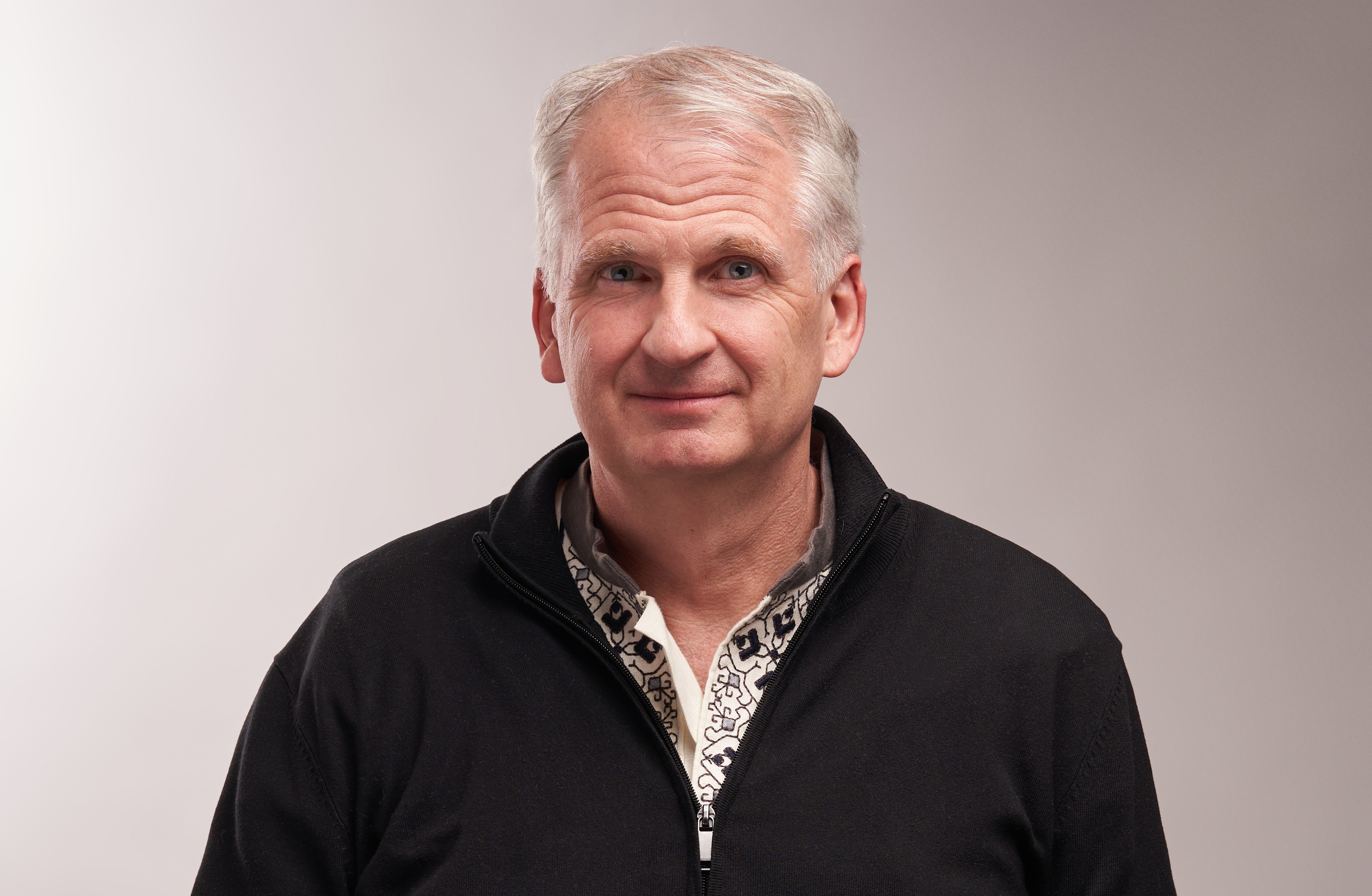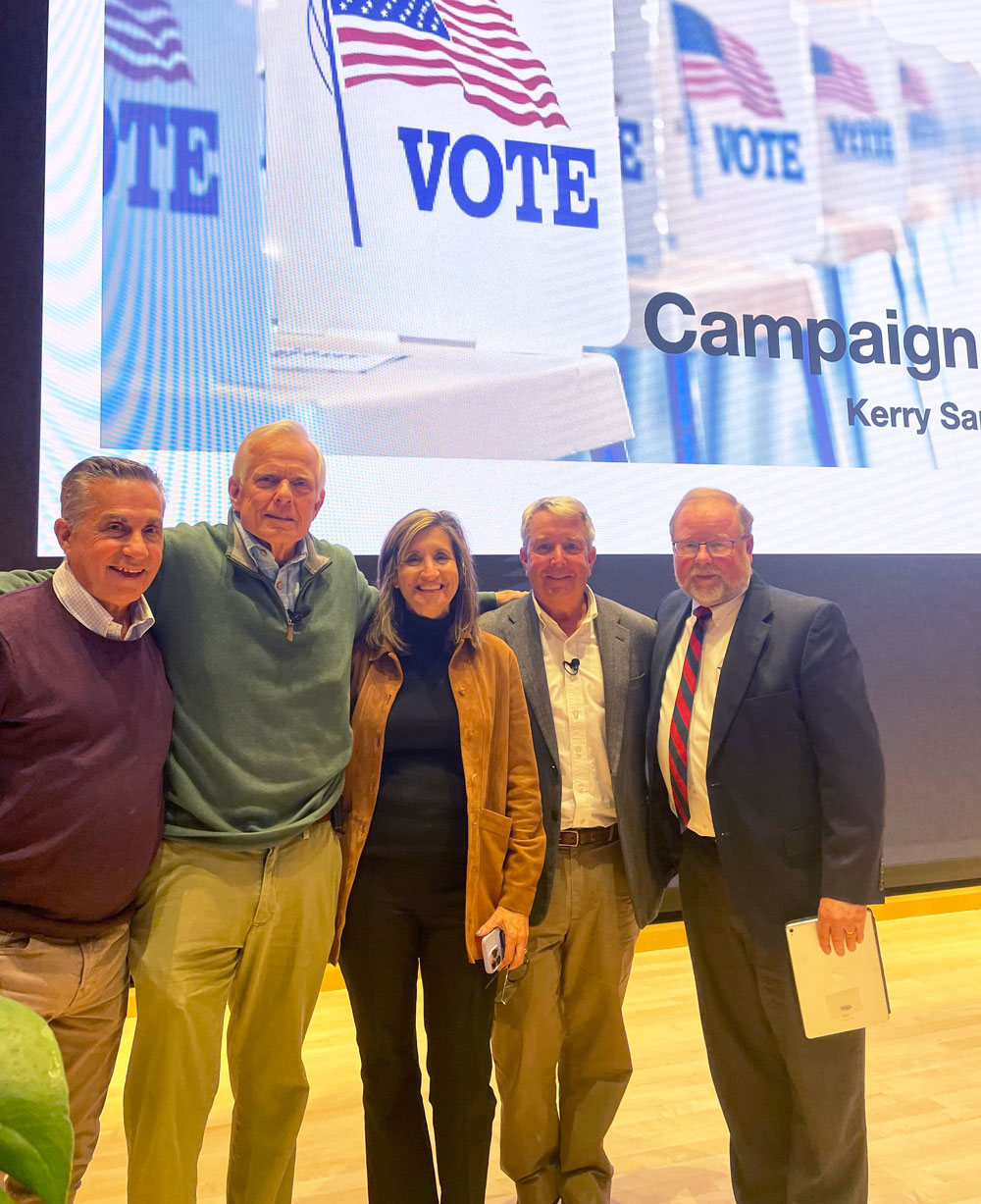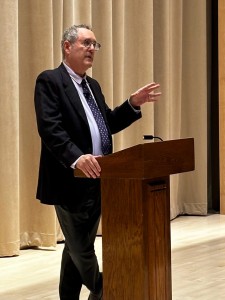The Center for the Study of American Democracy has been busy this fall with its series of lectures on the current state of American politics featuring national experts from the world of academia and the media.
Kicking off Family Weekend on Oct. 18, Michael Gerhardt, Burton Craige Distinguished Professor of Jurisprudence at the University of North Carolina, spoke on the relationship between commonly heard election-season phrases such as “This is going to be the most important election of our lifetime” and American society’s inheritance of the Constitution.
In his lecture, Gerhardt presented two versions of the Constitution, one being an interpretation that represents a strong national government that protects personal rights and individual liberties. The second, which he defined as the “Constitution in exile,” makes the claim that individual states should have the right to make decisions rather than upholding and reinterpreting the Constitution. The 2024 presidential election, Gerhardt stated, is a choice between the first version of the Constitution and the “Constitution in exile.”
“What do we want our government to do?” Gerhardt asked. “Every election sets an agenda,” he continued, referring to the choices American people make during each election to establish the ways in which courts, Congress and other governmental institutions will act during the four years of the elected president’s tenure and beyond.

Yale historian Timothy Snyder made a pit stop to speak with the Kenyon community during the book tour for his latest bestseller “On Freedom,” Addressing an audience in Oden Auditorium on Oct. 22, Snyder talked about his definition of “freedom” and how large-scale political cooperation can improve the lives of others and ensure their “freedoms to” as opposed to their “freedoms from.” According to Snyder, the U.S. has held the notion of freedom to mean a “freedom from” certain oppressions and oppressors, which doesn’t in fact lead to the prosperity of individuals and communities from historically marginalized backgrounds.
He explained that each person should aim to participate in environments that involve voices different from their own. “You don’t really know your own thoughts until you listen to others,” Snyder said before adding later, “We all have metaphysical smudges of shaving cream on our faces or spinach in our teeth,” meaning that each person has faults and wrong ideas that can and should be pointed out by others who might not hold the same beliefs.
Snyder discussed how by changing our definition of what freedom means and shifting our views more towards the idea that each person and community should have the “freedom to” love and care about different things, we move away from the mindset of “freedom from” only punishment. The “freedom to,” Snyder explained, “involves the future and looking forward,” rather than seeing freedom as a concept rooted solely in the past or present.

NBC broadcast journalists Kerry Sanders and Nick Bogert discussed the ever-evolving media landscape in America on Oct. 28 and shared their experiences related to audience trust and the spread of misinformation online. Bogert, a freelance producer, cautioned the audience against taking political figures at their word. When news outlets began to classify certain statements from figures as “lies,” he said “it seemed like a value judgment at first.” However, Bogert explained, there is a rise of misinformation being spread to American audiences, which can “overwhelm the people who don’t have time to fact-check.”
To combat the growing amount of misinformation available at the tips of the American public’s fingertips with smartphones and computers, Sanders, a retired senior national correspondent, stated that, “It’s up to us to gather the information that is available and think critically. We have to question what agenda is being pushed by the outlet or the person sharing this information.”
All four speakers agreed in their talks that Americans should be proactive and involved in making decisions, and feel confident that their choices — whether through voting in elections or through the actions they take in their daily lives — do indeed matter.
